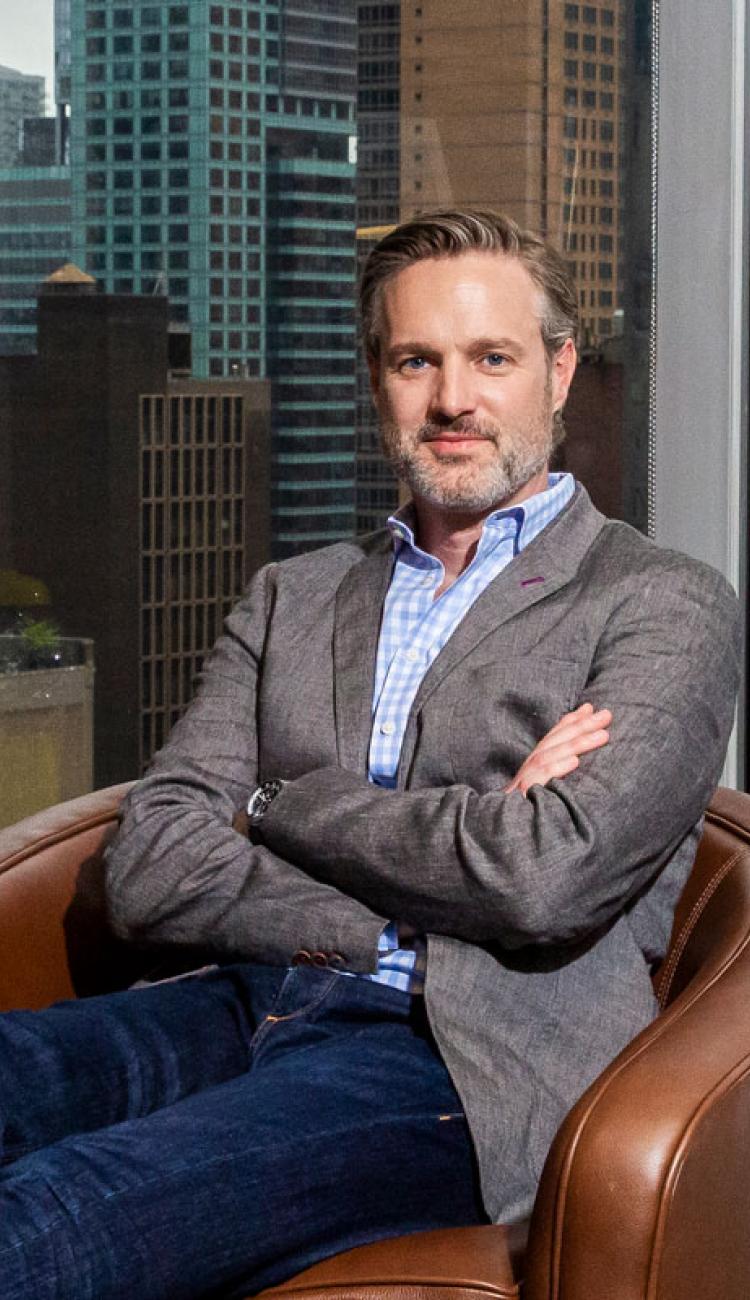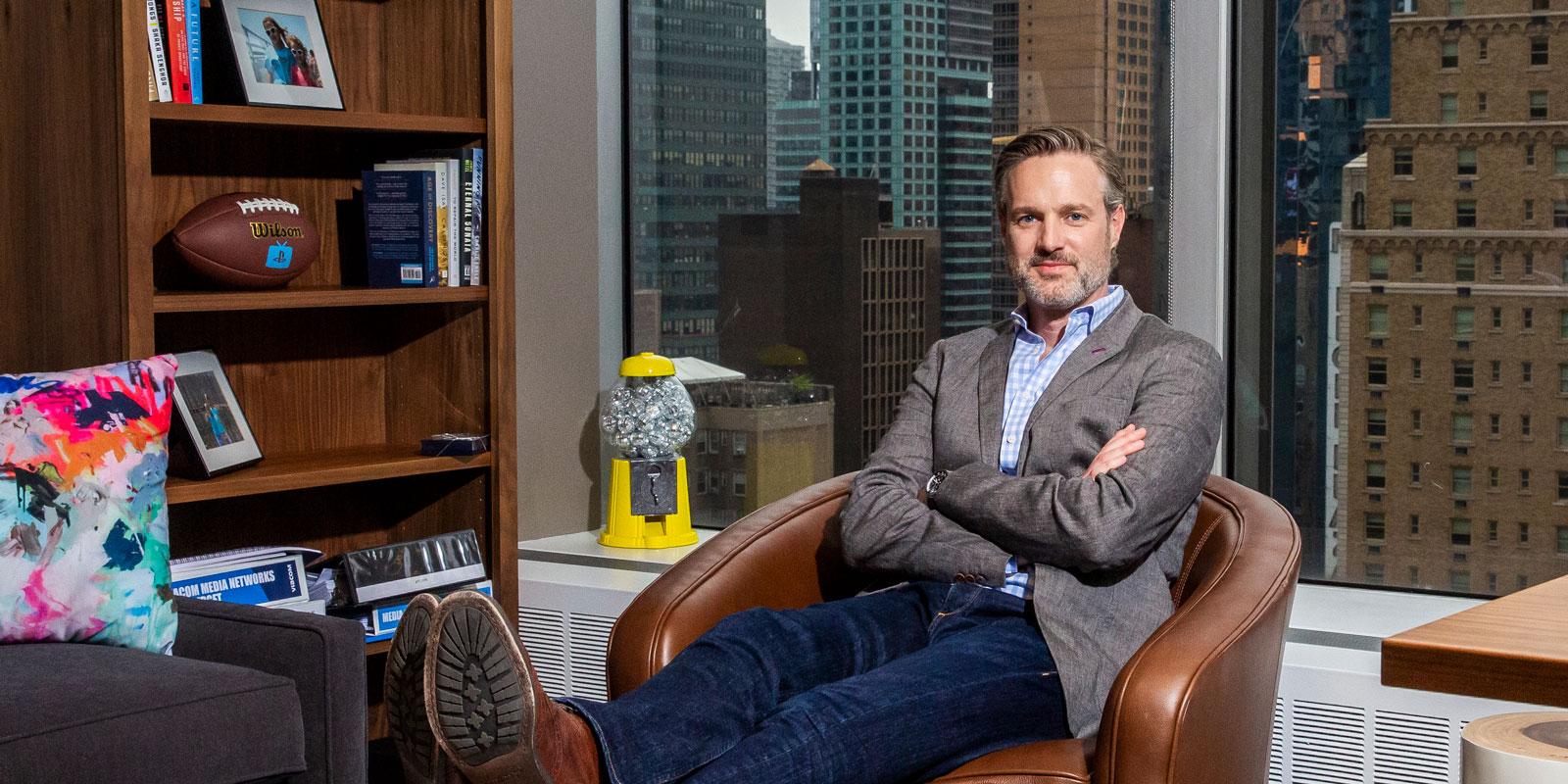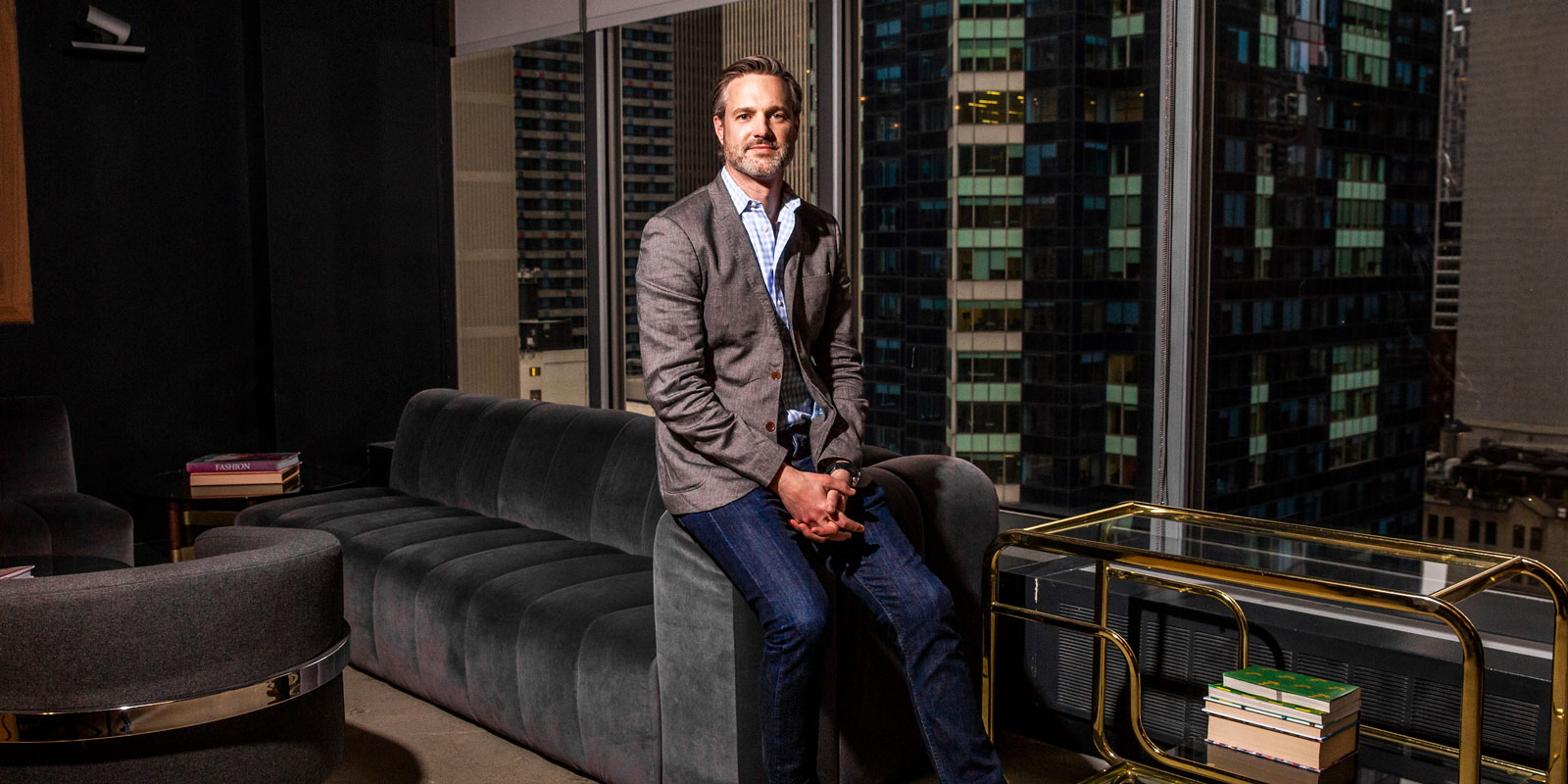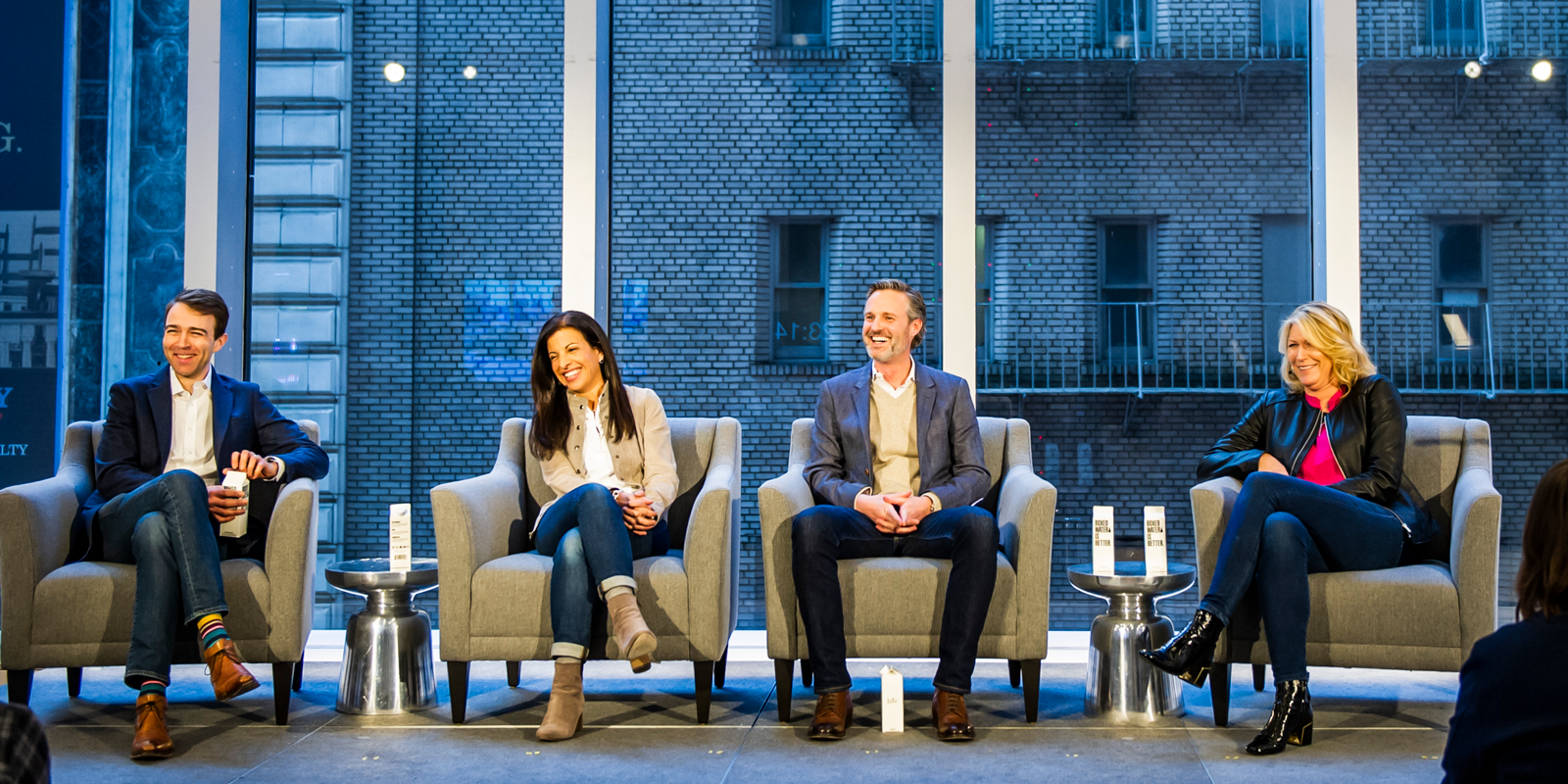May 28, 2019
The head of Viacom’s domestic distribution on the highs and lows of deal-making in the age of fragmentation.
Our In the Office With... series gives Viacom executives the opportunity to reveal a little bit about who they are, how they lead, and what drives them in the day-to-day.
When Tom Gorke took over Viacom’s domestic distribution in 2016, a top priority was improving relations with large distributors. Instead of adhering to the industry practice of doing business only when a deadline loomed, he wanted both sides to innovate and communicate regularly.
To that end, he and CEO Bob Bakish visited all the distributors to rekindle relationships. He also started annual Upfront-like events for distributors in New York and Los Angeles. The meetings gave Viacom the chance to share upcoming content and foster conversation between distributors, the brands, and corporate leadership. It was a departure from the traditional Upfront events, which center on enticing advertisers to buy time against content.
Now, two and a half years later, Gorke says his and his team’s efforts have worked to “varying degrees of success.” Progress has been made, but it hasn’t completely changed the dynamic between the two sides of the table.
Take the recent carriage negotiations with AT&T, the nation’s largest pay-TV provider with 24.5 million subscribers. There was a lot at stake for both sides. Despite improved relationships and efforts to get the deal done early, it came down to the wire and subscribers got caught in the middle.
All this makes for a challenging job.
"I believe in negotiating in-person, sitting across the table, working together to get the deal done. But not all of the distributors think like that. Some prefer to trade paper remotely and only engage as necessary. "
Gorke came up through the ranks in Viacom’s digital business, first doing digital business development and then spearheading distribution deals with emerging platforms like SVODs and mobile. In that world, disrupting the status quo was encouraged and rewarded. That’s not how traditional cable companies operate. And while there’s a lot of attention these days on digital players like Netflix, these platforms make up a “small but growing” percentage of Viacom’s nearly $4 billion domestic distribution revenue stream, which is dominated by income from deals with traditional cable and satellite companies.
Gorke and I spoke on his first day back from vacation following a hectic few months that included the AT&T negotiations and several other new deals. In fact, his office TV, normally on cable news, was still tuned to YES Network since his last day before vacation was Yankees' opening day.
Tara Weiss: The press coverage of negotiations with AT&T said you and your team were “camped out” at its El Segundo, Calif. headquarters for eight days. What was that like? Can you set the scene?
Tom Gorke: I remember reading it while I was there, and I was like, ‘Where did this come from?’ It is true, we hunkered down in L.A., both at its offices but also in some nearby space we arranged. We set up base camp about 20 minutes from AT&T’s headquarters. One room had a big table with several computer monitors. We brought in a bunch of printers since the contract is hundreds of pages. We had an industrialized-sized shredder and our own WiFi network. Food came in constantly. It turned into what felt like a locker room. You'd walk in in the morning and it would smell; there was days old guacamole on the table. It got pretty grim.
TW: Are negotiations more effective when you’re face-to-face?
TG: It depends on the people and the company on the other side of the table. I believe in negotiating in-person, sitting across the table, working together to get the deal done. But not all of the distributors think like that. Some prefer to trade paper remotely and only engage as necessary. We've done deals before where everything is done over the phone, but working around-the-clock while in different time zones is miserable. It was critical to me with AT&T to get on the same clock.
Small Talk
More difficult: coaching your daughters’ basketball teams or managing a team of 75?
They both have their challenges. With a bunch of 10- or 12-year-old girls who just want to chit-chat, there's a lot of chaos.
Office wardrobe:
I often wear jeans, mostly with a sport coat and sneakers. My black Air Jordans are getting a lot of rotation as of late. But in my job I have to wear a suit sometimes too. One is going to a client at their offices, when I know that their office calls for wearing a suit. The other is industry events that are suit-oriented.
Work phone at the dinner table—yes or no?
You touched on a sore topic. I very much try to have no phones at the table, particularly now that my older daughter got a phone for Christmas. But I can't stand emails piling up. Even when I was on vacation last week, though I wasn't responding to everything immediately, I was still, each night or morning, reading through my emails and staying up-to-date, because it bothers me to get way behind.
TW: You started at Viacom in digital business development 13 years ago and there’s been so much transformation since then. Is negotiating with digital platforms different from traditional affiliates?
TG: Shifting focus from the digital space, where generally speaking, there is a mentality of innovation and growth and trying to come up with new, creative partnerships, to this world of pure leverage and only engaging with the other side when there's bad things to talk about, was very foreign to how I think about things.
Quite honestly, it's not all that enjoyable to engage in that manner. But it's the way this world works generally. So over the last couple years, we've spent a lot of time trying to change that--both with distributors and also with my team. With my team, I’ve focused on a multiplatform mentality. Today, everyone on the team works with both digital and traditional distributors. I also continue to drive home the notion of innovation, even across our traditional relationships. The world is moving too fast for us to sit still.
TW: How have you started to shift the process of negotiations with traditional affiliates?
TG: Under the prior leadership, Viacom’s approach to these things was an eye for an eye, as is the common practice across the space. We had to change the perception of how Viacom did business with distributors. It also required taking some risk. Because me going in like, ‘Hey it's a new day. Bob Bakish is new. I'm new. We're going to do things differently,’ wasn’t enough. They're like, ‘Oh yea, right.’ We had to walk to the talk.
In one of the first meetings I had with Bob when I got this job, I took him through some of the issues with a particular larger distributor that had been going on for as long as I have been at the company. I said that the only way we're going to move the needle is to take an olive branch approach and say, ‘Fine, we will move off the positions we've held for five years on these several issues and go your way. But here are the couple pretty minor things we need to do that.’
Bob agreed. That started a very small little snowball with that distributor, where we got momentum and the company felt there was more mutual trust. And it evolved into some subsequent progress, some of which was pretty material. We would not have been able to get that done had we not started with small wins, taken risks, and moved off positions on Holy Grail-type issues that we dug in around in the past.
TW: How does the acquisition of Pluto TV impact the DBD team’s work?
TG: Pluto adds another option to our arsenal in terms of how we can work with distributors. Most of the big ones have a broadband business or a mobile business or both, and Pluto provides a cost-free way to work with Viacom to bring great content to viewers in those areas and others. Our goal is to reach customers across all segments and price points, and Pluto extends our reach into the free TV space.
TW: What was the transition like going from team member to team leader?
TG: I’m very in-the-weeds and a perfectionist. So it was a hard shift in mindset to step back and give this team responsibility for the nuts and bolts. It takes a lot of proactive effort to restrain myself from that urge to micromanage. But quite honestly, I am also fascinated by that evolution. The notion of thinking about what kind of leader you want to be, how to motivate a team of type-A personalities, how to develop bench strength and leaders. I really love the challenge.
The company was very supportive in providing resources. They asked what I thought about having a coach. I was like, ‘Whoa, are you offering it to me because I have issues or as support in an evolution?’ It was very much the latter. I'm a big proponent of coaching now. It takes checking your ego and being vulnerable to the fact that I don't know everything. And I feel great about the outcome. While there have been a number of big, challenging deals in the last couple years, one of the things I’m most proud of is the amazing and deep team I have. They are rock stars.
Photo credit: David Williams



